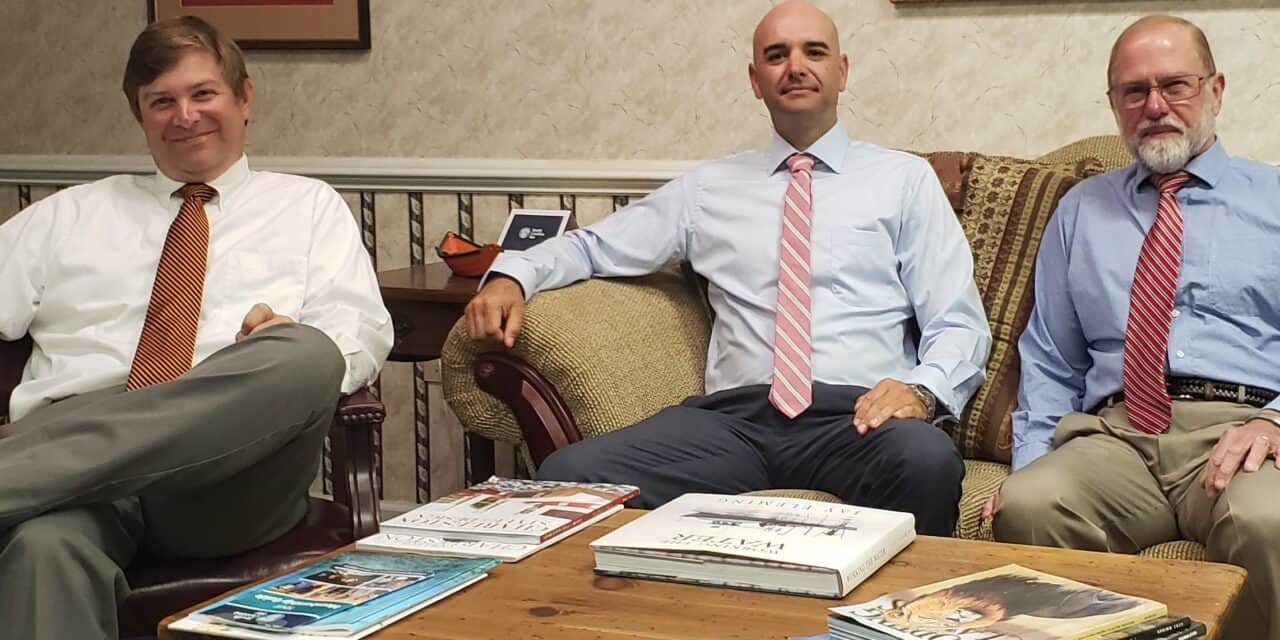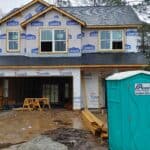Problems Homeowners Have With Contractors and the Construction and Renovation of Residential Homes
Have you paid some of your hard-earned money for a new residence or a renovation only to discover that the quality of construction work is not what you envisioned or what you paid for? Do you have water entering your home through your windows, siding, or roof? Do you have framing or foundation problems causing cracks in your floors, ceiling, or walls? Has your contractor refused to repair the damage, or stopped speaking with you altogether? If this sounds familiar, you may be one of the many frustrated South Carolina homeowners that are dealing with negligent or defective construction work in their homes and looking for answers.
Generally speaking, a construction defect is a deficiency in the design or construction of a building or structure usually resulting from a contractor failing to meet building codes or just using improper materials or poor workmanship. In other words, the work doesn’t meet an everyday homeowner’s reasonable expectations.
Some defects may be obvious, others may not be discovered until months or years after the construction is completed. Common examples include leaky roofs, leaky windows, siding and facia issues, crooked walls, unlevel floors, electrical and plumbing problems, HVAC issues, insulation and soundproofing issues, drywall issues, foundation problems, water drainage problems, and structural failures including problems with engineering or architectural designs. These often stem from poor workmanship, low quality materials, failure to following building codes, lack of planning, supervision, or improper inspection. While many construction defects can lead to property damage, loss of use, etc., some of the more dangerous defects, such as a structural failure, may result in even more serious issues.
So, if you are experiencing one or more of these issues in your home – what do you do? Every homeowner’s situation is different, and there is no one-size-fits-all approach to these problems. The best approach is to discuss your specific issues with an attorney that you trust to give you sound advice.
One particularly problematic issue for homeowners that are considering bringing legal claims against a contractor for construction defects in South Carolina is the South Carolina Notice and Opportunity to Cure Construction Dwellings Defects Act. It is important that you follow the requirements of the Act and give your contractor proper notice of the defects and an opportunity to inspect and cure the problems before you have any repairs performed by a third party or perform them yourself. If you do not comply with these provisions, you risk losing your claims forever.
Under the Act, a homeowner must follow certain requirements to provide a contractor or subcontractor written notice of the existence of construction defects at least 90 days before filing a lawsuit. Specifically, the notice must contain the following:
(1) a statement that you are asserting the existence of a construction defect;
(2) a description of the claim or claims in reasonable detail sufficient to determine the general nature of the construction defect; and
(3) a description of any results of the defect, if known. S.C. Code § 40-59-840.
The contractor or subcontractor has 15 days to requests clarification of the notice and 30 days to inspect the defects, remedy them, settle with the homeowner, deny the claim, or do nothing which is deemed a denial of the claim. Although homeowners must comply with the Act, a homeowner is not required to accept a contractor’s offer with regard to fixing the defective work. It is often the case that after discovering defective work, a homeowner no longer has faith in the contractor’s ability to do a good job.
Another important aspect of the Right to Cure Act is that the homeowner cannot repair the defects before following the above steps and complying with the Act. South Carolina courts have decided that repairing a defect destroys, not only a contractor’s opportunity to fix them, but also the homeowner’s ability to meet the requirement of the Right to Cure Act. If this happens, you may never be able to comply with the notice requirements of the Act and may never be able to recover your damages from the contractor or subcontractor.
If you are a homeowner and are dealing with construction defects, you need attorneys that are familiar with construction in general, the Right to Cure Act, and construction law. The attorneys at Cooper & Bilbrey, P.C. are experienced in litigation and dealing with those in the construction industry. Attorney A.J. Bilbrey worked in the residential construction industry for over 10 years before joining the U.S. Coast Guard and later becoming an attorney. Attorney John Townsend Cooper has experience in the industry as well and holds a South Carolina Residential Builder License. Give us a call and work with knowledgeable, experienced attorneys that can help you set things right and get back to enjoying your home again.
Disclaimers – The rules governing the professional conduct of lawyers mandate that we let you know the following information to prevent any confusion or misunderstandings about the content of this article:
The above information is provided for the reader’s general knowledge only and is not intended to be legal advice for anyone’s particular situation. The law is ever-changing, and different circumstances may require the application of different law or result in the above guidelines being irrelevant. If you have legal questions related to this content, you should consult an attorney of your choosing for advice regarding your individual situation.
Each case that we work on is different, and successful results that we may discuss related to cases that we have handled in the past do not mean that similar results are necessarily achievable in future cases that we may handle.
John Townsend Cooper is the attorney responsible for this content. His office is located at 1150 Queensborough Blvd., Mount Pleasant, South Carolina 29464.
Contact Us About Your Case
If you would like a free, confidential consultation with an attorney at our firm, or if you need assistance in finding the right attorney for your case, please fill out this form below:











